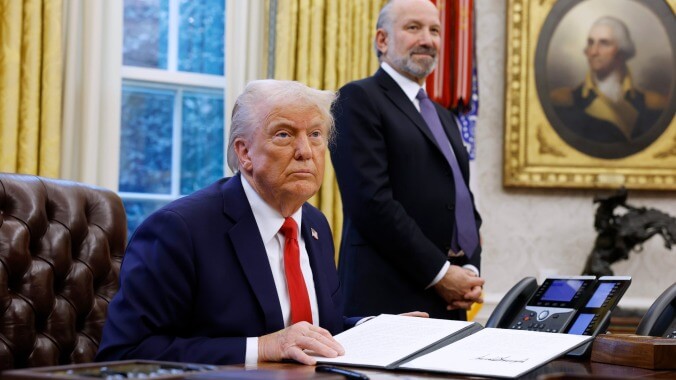Some Good News: Judge Blocks Trump’s Order to Send Trans Women to Men’s Prisons
Three women sued the Trump administration, saying that if they’re moved to a men’s facility, they’ll face high risk of sexual violence and could even be killed.
Photo: Anna Moneymaker/Getty Images Politics
In one of Donald Trump’s first moves as president, he signed an executive order attempting to erase trans people. The order claims to “restore biological truth,” and, as part of that order, moves incarcerated trans women to men’s facilities and denies their access to gender transition treatments. Immediately, three incarcerated trans women were removed from the general population of their women’s prison and placed in segregated housing. Despite their and their families’ pleas, they were told by the Federal Bureau of Prisons they would soon be moved to men’s prisons. The women filed a lawsuit to stop their removal, saying that if they’re moved to a men’s facility, they’ll face high risk of sexual violence and could even be killed.
On Tuesday, a federal judge temporarily blocked the Bureau from relocating the women to a men’s facility and from denying them gender-affirming care. The ruling states that the three trans women are likely to succeed in their lawsuit, which argues that Trump’s executive order violates the Constitution’s protections against cruel and unusual punishment. Their lawsuit will apply nationwide and protect other incarcerated trans women.
-

-

-

-

-

-

-

-

-

-

-

-

-

-

-

-

-

-

-

-

-

-

-

-

-

-

-

-

-

-

-

-

-

-

-

-

-

-

-

-








































